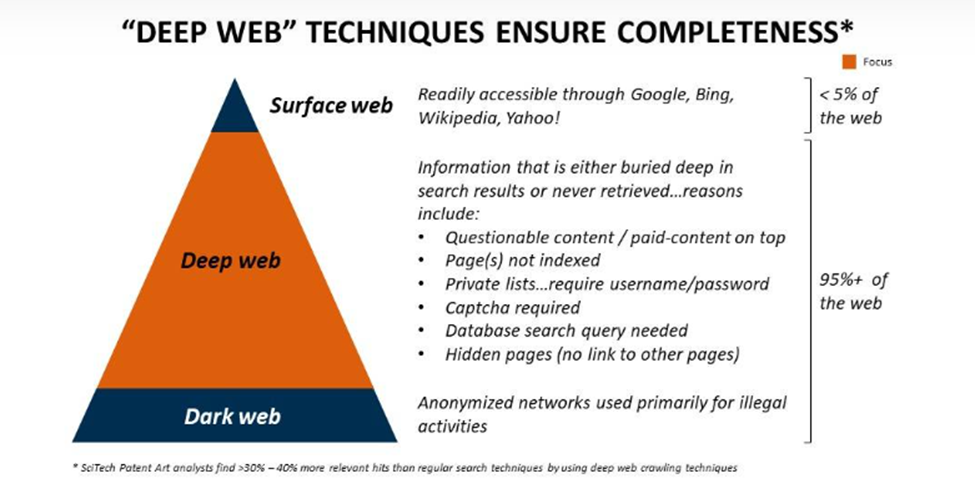When it comes to technology and innovation research, patents are only part of the story. A Non-Patent Literature (NPL) search fills critical gaps by uncovering valuable technical, scientific, and market-related information found outside traditional patent databases. At SciTech Patent Art (SPA), we combine years of experience, proprietary tools, and expert human insight to deliver comprehensive NPL analytics.
Why NPL Matters
While patent data is structured and well-indexed, non-patent literature is vast, diverse, and dispersed across thousands of sources. Despite this challenge, NPL plays a key role in many strategic research efforts:
- Technology Research – Stay updated on the latest technical developments and innovations.
- Patentability Assessment – Uncover prior art that may impact novelty and inventiveness.
- Patent Invalidation/Validation – Use NPL as evidence during legal proceedings.
- Market Intelligence – Analyze product strategies, consumer trends, and competitive moves.
- Product Landscape Mapping – Track product evolution and future roadmaps.
- Competitive & Partner Intelligence – Discover key players, collaborators, and recruitment opportunities.
Key sources include:
- Scientific publications and technical journals
- Business literature and company websites
- Product manuals, specs, and datasheets
- Conference proceedings and presentations
- Clinical trial records and regulatory filings
Challenges of NPL Search
Searching NPL effectively is not easy. Common issues include:
- Time-consuming processes across many databases
- Inconsistent indexing or hidden content
- Heavy reliance on analyst experience for quality results
- Complex alert setup across disparate sources
That’s why SciTech Patent Art has invested in proprietary solutions to overcome these hurdles.
Introducing SPA’s Deep Web Search Platform
Our Deep Web Search Tool uncovers information not indexed by public search engines like Google or Bing. While the “surface web” represents less than 5% of total online content, the Deep Web—which includes gated pages, academic databases, and more—houses 95% of the world’s digital knowledge.
Why typical search engines fall short:
- Search results are influenced by location and promotions
- Pages may be blocked or require login/authentication
- Captchas and hidden formats restrict data access

Built for Precision: Our NPL Search Advantage
Our platform was developed by a cross-functional team of software engineers, scientists, and search experts. It’s built on five foundational strengths:

- Domain Expertise
SPA’s knowledge scientists have deep expertise across fields like chemicals, pharma, polymers, food tech, med devices, electronics, and more. This allows us to curate highly relevant sources.
- Search Strategy Excellence
Our analysts have honed their skills over thousands of NPL searches. They create tailored strategies that consistently uncover high-impact references.
- Advanced Data Engineering
Our engineers build custom crawlers, data pipelines, and algorithms to extract, structure, and deliver actionable insights from raw content.
- AI & Machine Learning Integration
We apply ML in two key areas:
- Generating rich, domain-specific synonym lists
- Automatically categorizing large volumes of documents for relevance
- Iterative & Customized Approach
We continuously refine our sources, update technology-specific content, and customize solutions for each client’s evolving needs.
Real-World Impact: NPL Use Cases
Our Deep Web-powered NPL searches have enabled clients to:
- Analyze over 5,000 journal articles to identify research gaps in medical technologies
- Categorize 30,000+ scientific papers to map an entire device technology landscape
- Identify global research clusters, start-ups, and university projects in niche domains
- Conduct big-data analysis of 5,000+ innovation projects to extract emerging trends
Conclusion
Don’t limit your research to just patents. Our NPL and Deep Web solutions help you:
- Discover early signals of innovation
- Gain access to technical breakthroughs not found in patents
- Make informed R&D and IP decisions
Unlock the full picture of innovation—beyond patents.
